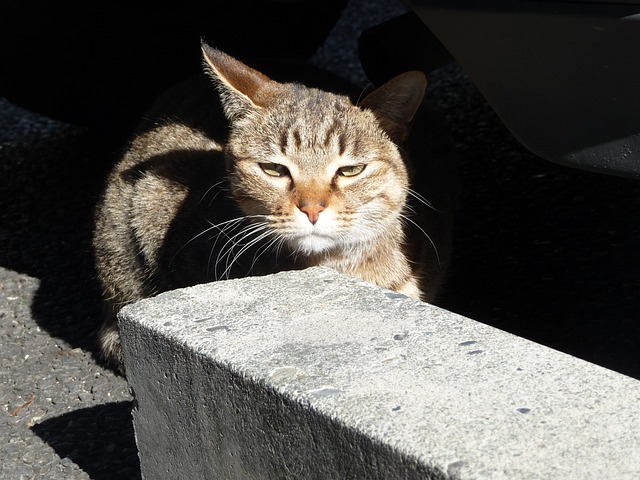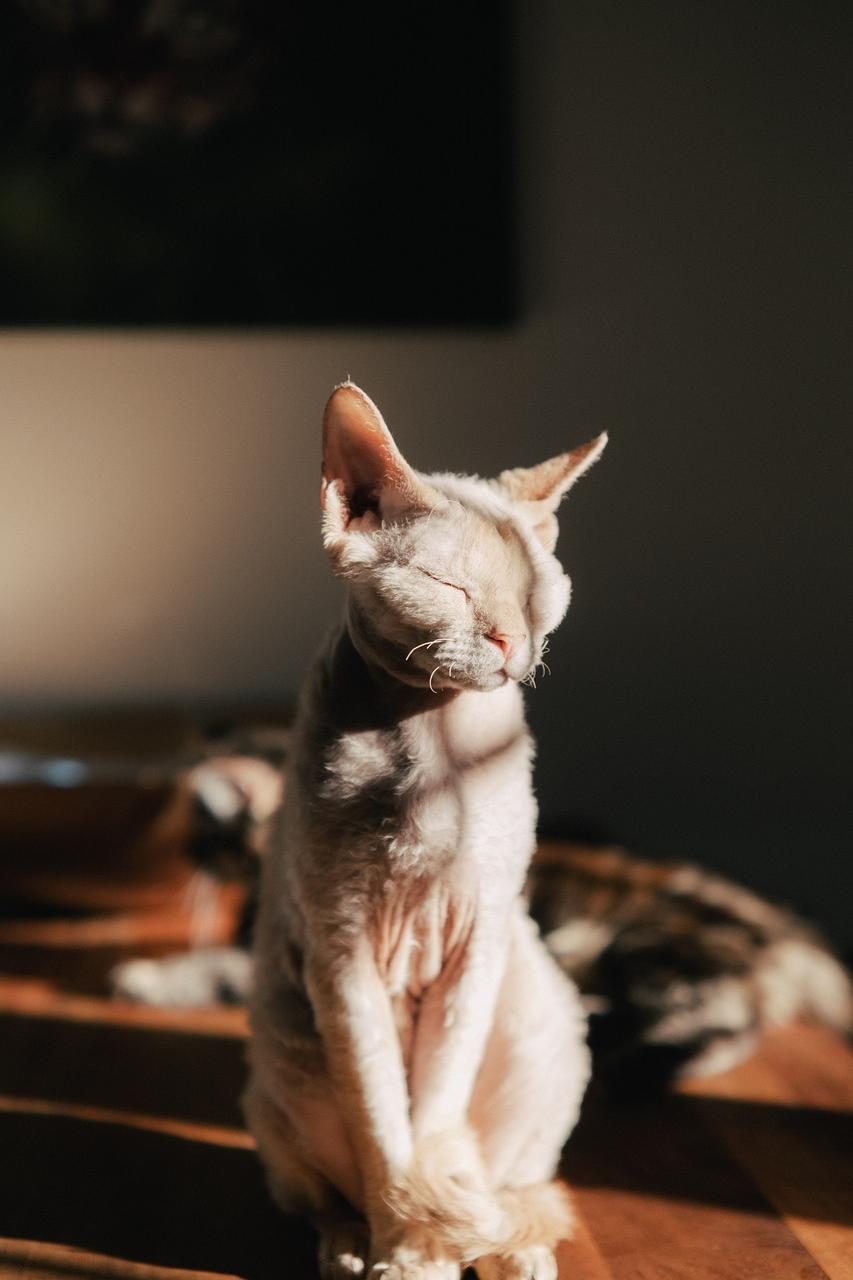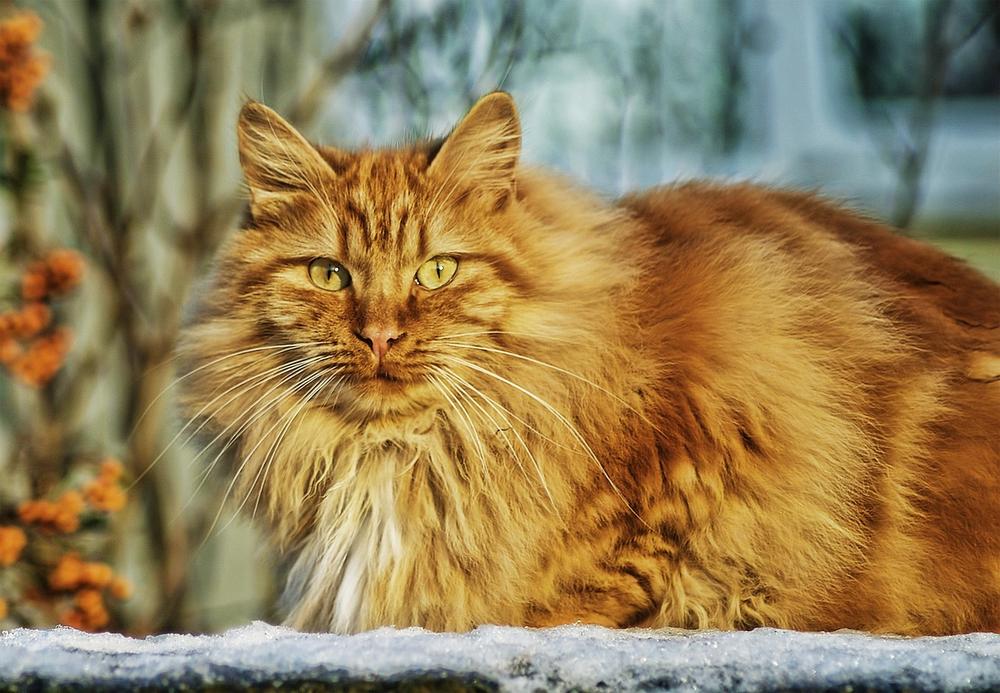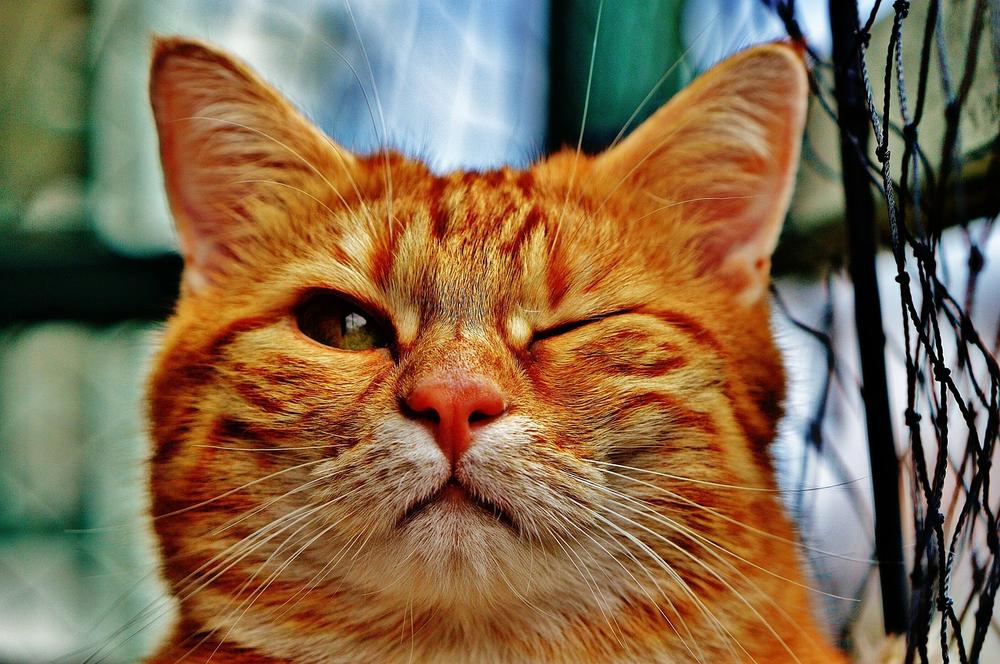Why Do Cats Lick Concrete? Is It Normal?

Ever caught your cat in the act of licking concrete?
Yeah, it's weird.
But hold your scratching post, worried cat owner! 🐱
We've ALL been there, wondering what the heck our furry friends are up to.
We see them lavishing attention on cold, hard concrete, and we can't help but worry.
Are they seeking an illicit feline high?
Are they channeling their inner Bob the Builder?
Don't fret, my feline-obsessed friends.
Today, we're going to unravel the mystery behind this peculiar behavior.
So, let's dig our claws in and find out what's really going on.
Ready?
Let's begin.
Understanding Pica in Cats and Its Link to Licking Concrete
Pica in cats is a disorder where they eat or lick non-food items like concrete. This unusual behavior may indicate a nutritional deficiency or anemia. Excessive licking of non-food items, including concrete, is a sign of pica. Consult a vet to determine the cause and proper care for your cat.
Alright, let's talk cats and pica.
Now, what the heck is pica, you ask?
Well, it's a fancy word for a disorder that makes cats go all crazy and start eating or licking things that aren't food.
Think plastic, wool, rubber bands, cement, and even rocks.
Amazingly enough, some cats have this weird thing where they just can't resist licking concrete.
I mean, who woulda thought? Licking concrete might seem super odd to us humans, but for cats with pica, it could be a sign of something more serious like a nutritional deficiency or anemia.
So how do you spot pica in your feline friend?
Look out for those visible signs.

If you catch your cat going to town on that concrete, it could be a red flag.
Excessive licking of non-food items is a telltale sign of this rare condition called pica.
Now, don't jump to conclusions right away.
You must rule out other possible causes.
But if you notice your kitty has a tendency to lick strange things like concrete, it may be time to seek advice from a vet.
They can help figure out the underlying cause and guide you on how to give your kitty the proper care they need.
Hang in there, my fellow cat lovers!
Help is on its way.
But wait, there's more!
If you notice any of these signs along with your cat's penchant for licking concrete, it's time to take action and seek veterinary guidance:
Signs and Symptoms of Pica in Cats
Excessive grooming, vomiting after eating nonfood items, refusal to eat regular food, weight loss—these signs should grab your attention because they could indicate a condition called feline pica. It's worth worrying about.
When your cat starts munching on inedible objects instead of their usual food, you know something is off.

Keep an eye out for these behaviors and take note.
Your kitty relies on you to notice when things aren't quite right.
Remember, it's better to be safe than sorry. So pay attention and consult your vet if anything seems amiss.
Potential Reasons for Cats Licking Concrete
Cats are fascinating creatures, aren't they?
And their behavior can be quite mysterious. So let's dig deeper into the reasons why cats lick concrete:
- Residual food particles: Cats may lick concrete because it contains tasty remnants of food. Those leftover flavors and smells can be irresistible to our feline friends.
- Medical conditions: Licking concrete could also be a sign of medical issues like Pica, anemia, or calcium insufficiency. It's essential to consider these factors if you notice your cat engaging in this behavior.
- Sensory experience: Cats might find the sensory experience, texture, and flavor of concrete soothing or appealing. This could explain their inclination to lick concrete surfaces.
- Nutritional balance: It is crucial to ensure that your cat has a balanced diet to prevent nutrient deficiencies that could potentially drive them to lick concrete.
- Toxic substances: Concrete may contain traces of antifreeze, which cats can be attracted to. However, antifreeze is toxic to cats, so it's vital to keep them away from concrete areas where this substance may be present.
- Boredom and destructive behavior: Cats may resort to licking concrete out of boredom or as a form of destructive behavior. Identifying the underlying cause of this behavior is essential for providing appropriate interventions.
Understanding why cats lick concrete can help us better care for their needs and ensure their well-being. 😺

And if you've noticed your cat engaging in this behavior, you might be wondering if there are other unusual habits to be concerned about.
Well, I have just the guide for you! In my article, Old Cat Peeing Everywhere, I delve into the solutions and explanations for why older cats may exhibit this behavior.
So if you're curious to find out more and put your mind at ease, make sure to check it out! 🐱
Is Licking Concrete Harmful to Cats?
Is the habit of cats licking concrete dangerous?
Well, it depends.
Let me break it down for you.
Not every instance of concrete licking poses a risk, but you ought to be cautious, especially if you have a cat.
To begin with, wet cement can be harmful when ingested, causing irritation or toxicity.
It's best to keep your inquisitive feline away from freshly poured concrete.
Additionally, driveways contaminated with antifreeze can be toxic to cats and may result in medical issues or lethargy if consumed.
So, be vigilant for any suspicious liquids on concrete surfaces and be sure to watch out!
But that's not all, my friend.
The dust produced by cement can irritate the respiratory system, particularly in cats with pre-existing conditions like asthma or allergies. This can affect their lung function and make breathing more challenging.
We certainly don't want that, do we?
And let's not overlook dental problems.
Repeated contact between a cat's teeth and concrete can lead to dental issues over time.
This translates to additional trips to the vet and potential discomfort for your beloved furry companion.
That doesn't sound pleasant!
Furthermore, older structures might contain hazardous substances such as lead in the concrete, which can cause toxicity with prolonged exposure.
Ingesting debris or sharp edges from concrete can also lead to internal damage or blockages.
That's definitely something worth considering.
Last but not least, outdoor concrete surfaces may harbor bacteria or pathogens that can make cats ill.
Although cats may find concrete appealing, it is advisable to discourage this behavior due to potential health risks.
While cats have their own unique habits, prioritizing their well-being remains crucial.
If any behavior negatively impacts your cat's health, it's always a good idea to seek guidance from a veterinarian who can provide proper care and advice.
After all, our furry companions deserve the best possible care.
But here's the thing you need to know:
Concerns About Cats Licking Concrete: Is It Normal?
Licking concrete sure sounds unusual, huh?
But let's get to the bottom of it.
For cats,licking concrete is generally a common thing.
It doesn't raise any red flags as long as it's done sporadically.
However, there are instances when excessive concrete licking may become alarming, especially if your furry pal keeps doing it near driveways.
This could be a sign that they're drawn to toxic substances like ethylene glycol (aka antifreeze).
And let me tell you, that stuff can cause serious harm if ingested by your cat.
To ensure your feline friend’s safety, it’s wise to consult with a veterinarian. They'll help rule out any underlying health concerns and provide appropriate advice based on your cat’s specific situation.
Be on the lookout for other abnormal behaviors or signs of illness too.
If this habit lingers or your cat appears unwell, don't hesitate to seek veterinary attention. Your cat's well-being should always take precedence over assumptions and guesswork.
But if you've noticed your cat exhibiting concerning behaviors like licking concrete excessively, it's important to take action.
In my article, Why Does My Cat Bite Me When I Sleep, I provide answers and practical solutions to help you understand why your furry companion might be biting you at night.
Don't let curiosity and concern go unresolved – discover the reasons behind this behavior and find ways to stop it.
Tips to Prevent Cats From Licking Concrete
To prevent cats from licking concrete, keep them indoors and provide an engaging environment with toys and scratching posts. Avoid giving attention to the behavior and redirect it towards suitable alternatives like puzzle toys. Regular vet check-ups, a proper diet, and mental and physical stimulation are also important.
Preventing your cat from licking concrete is key, and I've got some tips just for you.
To keep your cat away from concrete, the first step is to keep them indoors. It eliminates access to any potential hazards.
So here's the deal:
Create an engaging indoor environment with toys and scratching posts. Distract them from non-food items like concrete.
And guess what?
You play a big role too.
Spend interactive playtime with your feline friend to stimulate their senses and combat boredom.
Now, listen up. If your cat starts licking concrete, don't give them attention for it.
Redirect their behavior towards something more suitable, like puzzle toys or interactive feeders.
Oh, and don't forget about wet concrete. Keep your kitty's paws off it to avoid unnecessary mess.
But what if the licking persists?
It might be time to see the vet, my friend. Regular check-ups ensure the overall health of your cats.
In the meantime, focus on a proper diet, safe chewing options, fresh water, and mental and physical stimulation for your cats.
These factors are vital in stopping excessive licking and prioritizing your furry companions' well-being.
Minimizing Risk: Cats and Concrete Licking
Key Takeaways:
- Feline pica or a nutritional deficiency can make cats lick concrete.
- Excessive licking of non-food items, including concrete, can be a sign of pica in cats.
- Licking concrete may be due to medical conditions like anemia or calcium insufficiency.
- Cats may find the sensory experience or flavor of concrete appealing.
- Licking concrete can be a result of interesting smells from spilled food.
- Balancing a cat's diet is important to prevent nutrient deficiencies.
- Be aware of potential dangers like antifreeze smell in concrete.
- Boredom or destructive behavior can lead cats to lick concrete.
- Licking concrete can be harmful due to toxic substances, dental issues, or internal damage.
- Outdoor concrete surfaces may harbor bacteria or pathogens.
- Consult a vet if your cat persists in licking concrete excessively or shows signs of illness.
- Reinforcing attention-seeking behavior may encourage the licking behavior.
- Protect wet concrete from animal access and keep cats indoors if needed.
- Regular veterinary check-ups are recommended to ensure overall health.
- Provide alternative forms of entertainment and safe chewing options for cats.
And that wraps up today's article.
If you wish to read more of my useful articles, I recommend you check out some of these: Why Does My Cat Scratch at the Mirror, Why Does My Cat Watch Me Shower, Why Does My Cat Eat My Other Cats Whiskers, Why Do Cats Lick Themselves After You Pet Them, and Why Does My Cat Play in the Litter Box
Talk soon,
-Sarah Davis